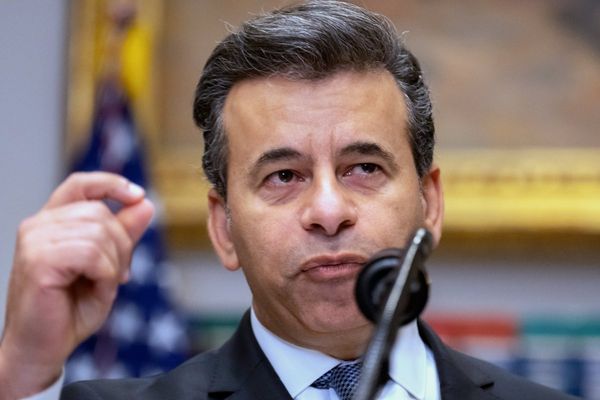
There was a telling moment at last week’s PMQs. After Keir Starmer declared that Plaid Cymru leader Liz Saville Roberts was talking “rubbish” – she asked if there was any belief that he held for more than a week – Rachel Reeves roared with laughter. But Angela Rayner, sat by her side, remained impassive.
To observers in Labour, this was evidence of the shifting power dynamics inside the cabinet. Reeves is an unpopular Chancellor who serves at Starmer’s pleasure (MPs routinely ask whether she could be replaced before the next election). Rayner, by contrast, is Labour’s elected deputy leader – and the frontrunner to succeed Starmer.
After the party’s victory last year, Rayner did not have an easy start in government. She was denied a formal Office of the Deputy Prime Minister (against her pre-election wishes) and permanent membership of the National Security Council (something eventually granted). Insiders began to talk of Pat McFadden, the veteran Blairite, as the “real deputy prime minister”.
But Rayner held her nerve. Allies insist that her position was always stronger than it appeared. John Prescott, the late Labour deputy prime minister (to who she was close), became known as “two Jags”. Rayner has five offices: one in the Cabinet Office, her Ministry of Housing, Communities and Local Government office, her parliamentary office, her constituency office and one in a Manchester government building (where she sometimes works on Fridays). So why do an increasing number believe No 10 could be her eventual residency?
Inside the Labour Party, there may not be a vacancy but there is always a contest. Leadership campaigns are planned years in advance and policies carefully assessed for future political impact. Back in 2021 – when Starmer removed Rayner as party chair and national campaign coordinator – she came close to launching a union-backed coup against him (before being appeased with three new jobs).
In the years since, Rayner’s position has sometimes appeared precarious. She was twice investigated by police: once in 2022 for allegedly breaching lockdown rules (alongside Starmer) and once in 2024 over claims that she avoided tax on the sale of her Stockport council house. Yet, having walked through the media fire, she ultimately emerged strengthened.
When Starmer pledged to resign if convicted it was Reeves and Wes Streeting who contemplated standing for the leadership. But Rayner is now in a stronger position than both.
It might seem unusual for a party elected less than a year ago to be debating its next leader – but then Labour is an unusually unpopular government
Reeves has become one of the country’s most unpopular politicians, defined by her early decision to cut winter fuel payments (her approval rating among voters is now just one point higher than Donald Trump’s). Among left-leaning Labour members – the group who would determine the next leader – she is the least favoured cabinet minister (with a rating of -41).
Streeting is admired by No 10 and even by some of his detractors as one of the government’s best communicators. But despite running the NHS – celebrated as the jewel in Labour’s social democratic crown – his Blairite reputation means his approval rating among members is -2.
Rayner, however, is the most popular cabinet minister after net-zero champion Ed Miliband (with an approval rating of +46). Unlike Reeves, she is untainted by divisive policies and her landmark bills – expanding rights for renters and workers – are among the government’s most favoured. In the view of an influential Labour MP, Rayner is “the only one who can win among the members right now”.
Though traditionally associated with the party’s soft left, she is capable of bridging its warring factions. Rayner, who has praised New Labour for “changing her life” as a teenage mother, was the special guest at Tony Blair’s Christmas drinks last year. She is also close to Gordon Brown and enjoys links to Blue Labour thinkers such as Jonathan Rutherford favoured by Downing Street.
It might seem unusual for a party elected less than a year ago to be debating its next leader – but then Labour is an unusually unpopular government. It lost two-thirds of the seats it was defending in the local elections and now consistently polls behind Nigel Farage’s Reform. In this climate, MPs are growing increasingly recalcitrant. “Fear of losing your seat is greater than getting bollocked by the whips,” observes one rebel.
Even cabinet ministers privately question whether Starmer will still be leader by the time of the next election. Next year could see Labour defeated in Scotland and Wales and bruised in London. Faced with the insurgent Farage, Rayner’s admirers believe that the plain-speaking deputy could be the party’s “Heineken candidate” – reaching the alienated voters who others can’t. For now, her rivals can only watch as she speeds ahead in the race that dare not speak its name.
George Eaton is senior editor (politics) at the New Statesman







